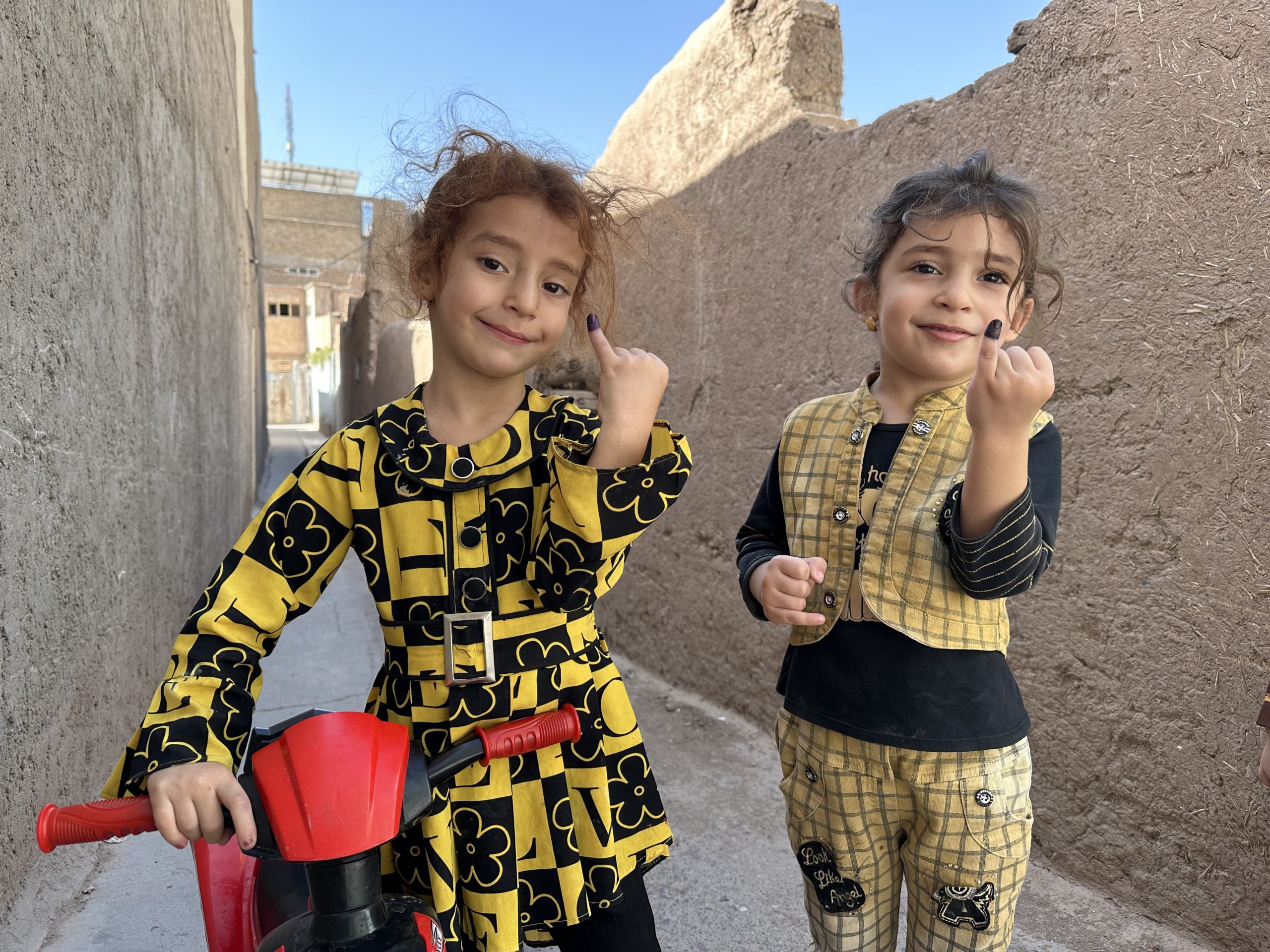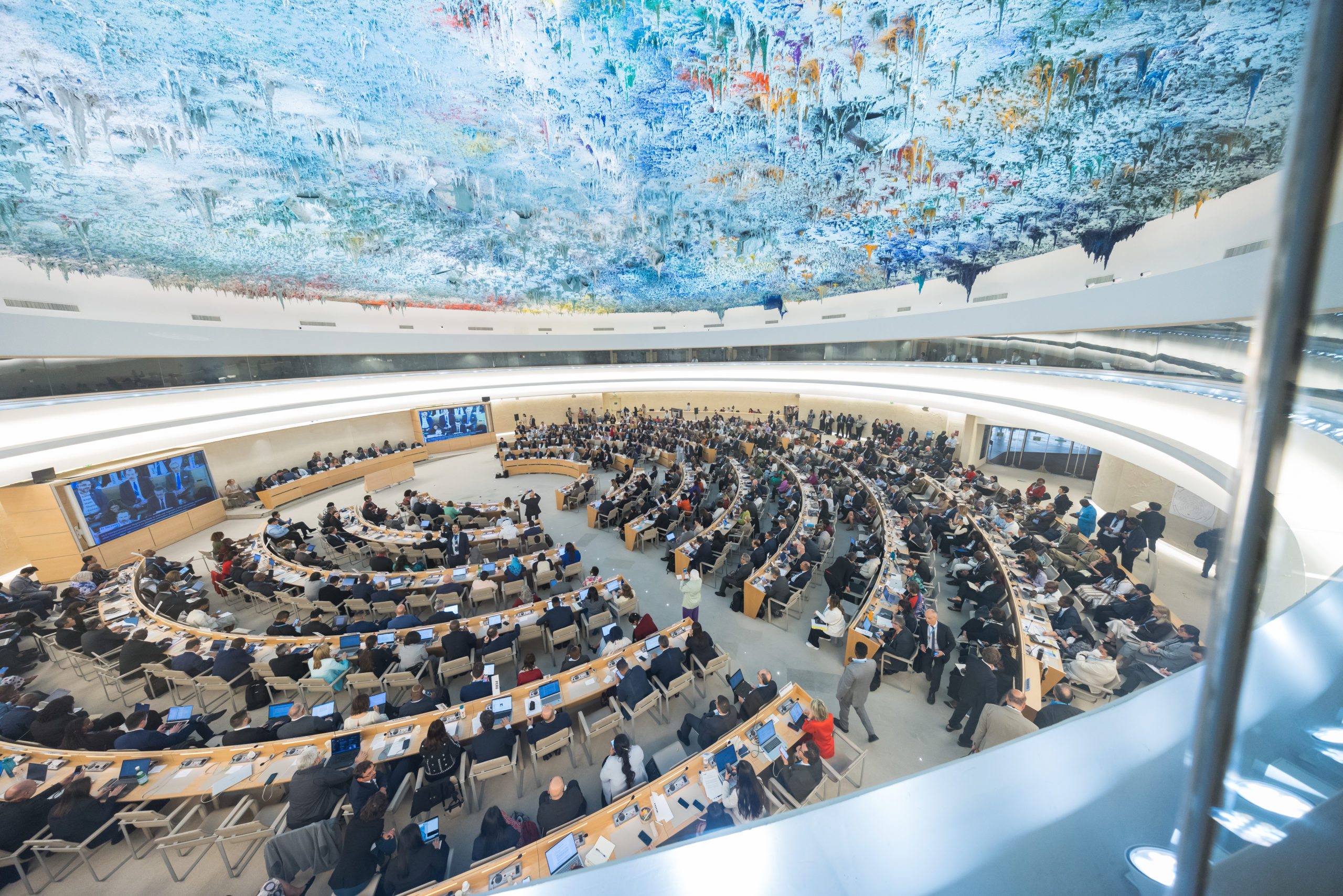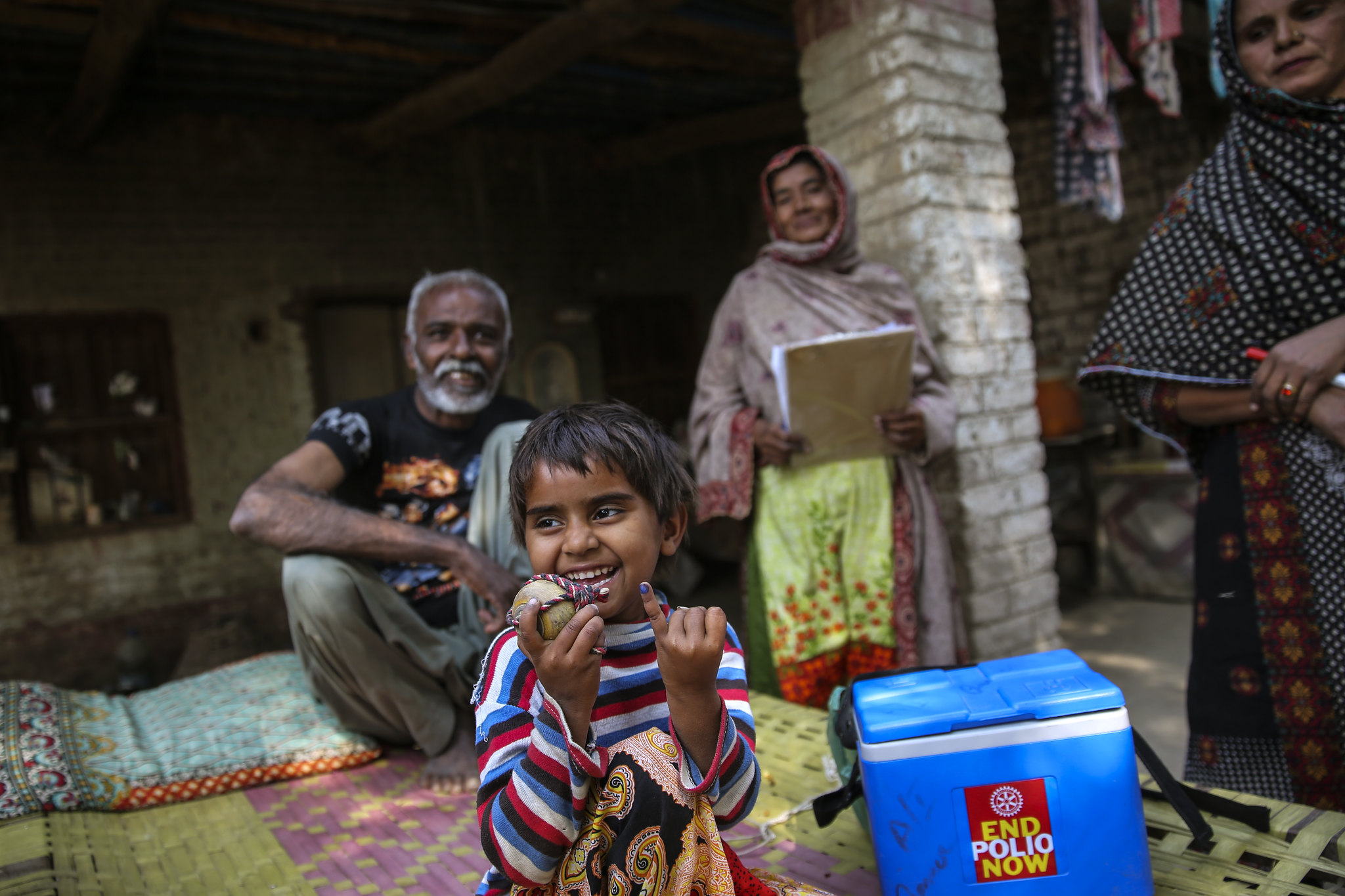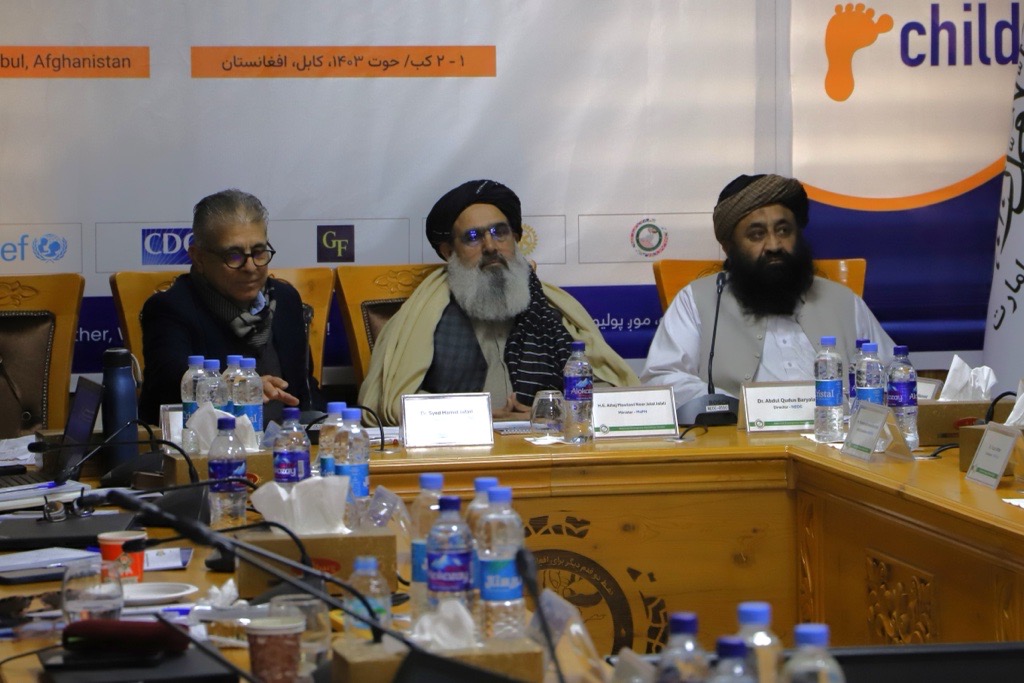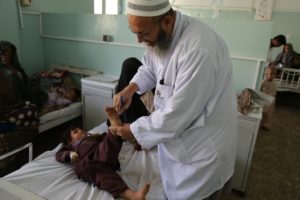
A strong surveillance system is the backbone of Afghanistan’s polio eradication effort. It ensures that every single poliovirus is detected and analysed, enabling a quick and effective response to stop every strain of the debilitating virus.
Afghanistan is closer than ever to stopping polio. The year 2016 ended with only 13 cases, down from 20 in 2015 and 28 in 2014. Most of Afghanistan remains polio-free, with transmission limited to the southern, eastern and southeastern parts of the country. Surveillance is key to ensuring that the virus is tracked and stopped wherever it circulates.
Together with partners of the Global Polio Eradication Initiative, WHO is further strengthening Afghanistan’s surveillance system to accelerate progress towards a polio-free Afghanistan.
Active volunteers track down the virus
Afghanistan currently has a network of 21 000 acute flaccid paralysis (AFP) reporting volunteers, including health workers in health facilities as well as community volunteers such as traditional healers, mullahs, shrine keepers and pharmacists, supported by over 700 AFP focal points. These volunteers actively find and report children who have symptoms that could be polio: floppy, rapid-onset paralysis with no apparent cause. Stool samples are collected from each child with suspected polio, and sent for further laboratory testing and analysis.
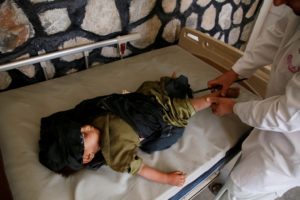
“As a doctor I feel it is my responsibility to work for polio eradication in my country. Polio is a devastating disease that can cause permanent paralysis so everyone should play their part in ending this disease,” said Dr Saifurrahman, AFP reporting volunteer from Shah Wali Kot district of Kandahar. “When a patient with floppiness or paralysis comes to the clinic, I examine the child properly and if the signs point to polio, I immediately inform the Provincial Polio Officer, after which we’ll collect stool samples for further testing.”
In 2016, the polio surveillance network reported a total of 2903 AFP cases, of which 13 were confirmed polio cases and 2858 were discarded as non-polio AFP. As of mid-February, 31 cases are pending classification.
An external review conducted in 2016 concluded that Afghanistan’s polio surveillance surpassed global standards and the circulation of wild poliovirus is unlikely to be missed.
With the support of WHO, Afghanistan continues to step up its surveillance system. In last year alone, 458 new surveillance reporting sites have been introduced and the AFP reporting volunteer network expanded by 18%.
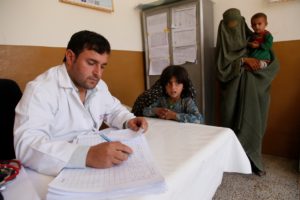
When vaccinators go around communities during immunization campaigns and transit teams vaccinate children on the move, they also conduct active AFP case search to further boost AFP surveillance. Active AFP case search has also been incorporated into trainings led by the Ministry of Public Health and WHO ahead of every national immunization campaign.
Strong polio surveillance relies on Afghans who are close to their communities and trusted by them. Saheeb Jaan, a shrinekeeper in Bamyan province, has been a volunteer AFP reporter for 8 years.
“If I see a family come to the shrine with a sick child having weakness or paralysis, I report it to the doctors. WHO has given me a referral notebook so that I can get their information and convince them to call the doctors to make sure their child does not have polio,” she said. “I became a volunteer because it is a good cause and helps save children’s lives. I am happy and proud to be a part of the polio campaign.”
Every single AFP reporting volunteer receives comprehensive training from WHO at least once a year, reviewing key aspects of surveillance such as AFP case definition, clinical signs and symptoms of polio, proper check-up procedures and the protocol for notifying AFP cases to the focal point.
Stepping up environmental surveillance
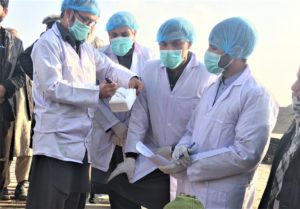
Environmental surveillance, the collection and laboratory analysis of sewage samples, further increases the sensitivity of surveillance in critical areas.
Afghanistan’s environmental surveillance was set up in Kandahar City in 2013 and samples are now regularly collected from 17 active surveillance sites. WHO and partners conducted a thorough assessment of existing sites in December 2016, leading to three new additional surveillance sites being selected in Kandahar, Nangarhar and Khost, in addition to existing sites in Kabul, Kunar and Helmand. Environmental samples are collected monthly, but sampling frequency has recently been doubled in the south.
In 2016, two poliovirus isolates were reported from environmental samples, down from 19 in 2015.
The road ahead
Afghanistan’s strong surveillance system ensures that the programme continues to find every strain of the virus in its hiding places, accelerating the road ahead to a country free of polio.
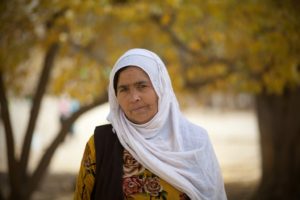
Vigorous training of AFP reporting volunteers and focal points remains crucial in order to guarantee that no AFP case is missed and that samples are collected, stored and transported properly. WHO continues to support the training and orientation of new and existing AFP focal points and volunteers to ensure each volunteer is trained at least once a year.
The programme is engaging more private health facilities to further strengthen the AFP reporting network. Currently almost 1400 private practitioners are involved as reporting volunteers around the country, making up 6% of the network, and the number is increasing. Engaging more private clinics will further improve the programme’s ability to find children with paralysis.
“Afghanistan’s surveillance system exceeds global standards but we must continue to stay vigilant and continuously review and expand the system where necessary,” said Dr Hemant Shukla, head of the polio programme at WHO Afghanistan. “Constantly improving the quality and sensitivity of the surveillance system is critical for securing a polio-free future for Afghanistan.”
